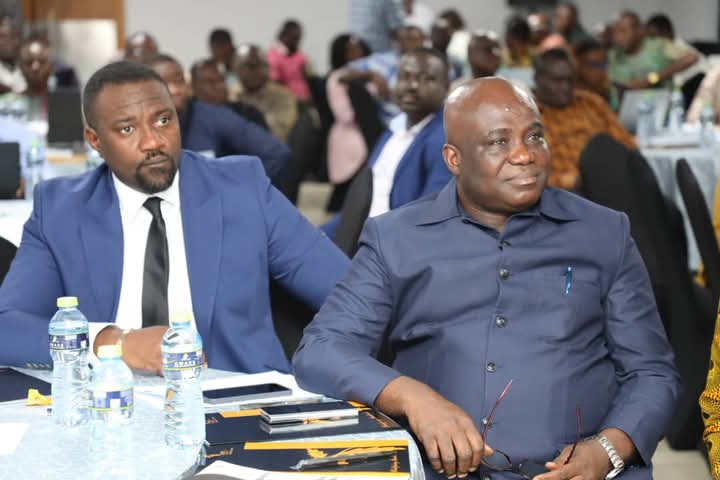By Josephine Kekeli Amuzu
The Minister for Food and Agriculture, Eric Opoku, has reaffirmed the government’s commitment to revamping the country’s agricultural sector through the Feed Ghana Programme (FGP)—a bold initiative aimed at achieving national food security and sustainable agricultural growth.
He made these remarks at the National Validation Workshop held in Accra on May 29, 2025, where stakeholders gathered to fine-tune and endorse the FGP.
Describing the workshop as a critical platform for collective action, the Minister said:
“Today’s workshop is more than a validation exercise; it is an opportunity for us all to take ownership of the Feed Ghana Programme, fine-tune its strategies, and ensure it is practical, inclusive, and results-oriented.”
He commended the Ministry’s technical team for their dedication and lauded the collaborative effort behind the programme’s development. He also acknowledged financial support from international partners, including the Alliance for a Green Revolution in Africa (AGRA), the International Fund for Agricultural Development (IFAD), and the Food and Agriculture Organization (FAO), for their role in shaping what he called a transformative blueprint.

The Minister outlined several pressing challenges in Ghana’s agricultural landscape, such as low productivity, dependence on food imports, limited access to irrigation and mechanization, underutilized arable land, and weak links between agriculture and industry. He emphasized that the FGP is a structured and ambitious response to these challenges.
“The Feed Ghana Programme embodies our collective vision to build a resilient, sustainable, and inclusive food system that generates jobs, curbs imports, and drives agro-industrial growth,” he stated.
The programme is built on nine strategic sub-programmes, addressing key areas such as crop and livestock development, agricultural financing, infrastructure, farmer services, and institutional capacity building. A major focus is on empowering marginalized groups—particularly smallholder farmers, women, youth, and persons with disabilities—through cooperative development and increased involvement in agricultural value chains.
The Minister called for stronger stakeholder collaboration to ensure the initiative’s success.
“Your participation is vital. With your collective ingenuity, we can craft a policy that not only feeds our nation but also empowers our people and transforms our economy,” he urged.
He concluded with a strong assurance of government backing for implementation, promising resource mobilization, cross-sector policy alignment, and a conducive environment for private sector participation.
“As we deliberate today, let us ensure the Feed Ghana Programme emerges not just as a validated document but as a practical, owned, and impactful roadmap for Ghana’s agricultural renaissance,” the Minister concluded.
The event attracted development partners, ministry officials, farmers, private sector actors, civil society organizations, academics, and media representatives.
The validation workshop continues as stakeholders engage in constructive dialogue aimed at refining the FGP and positioning Ghana’s agriculture for long-term transformation.
More stories here
